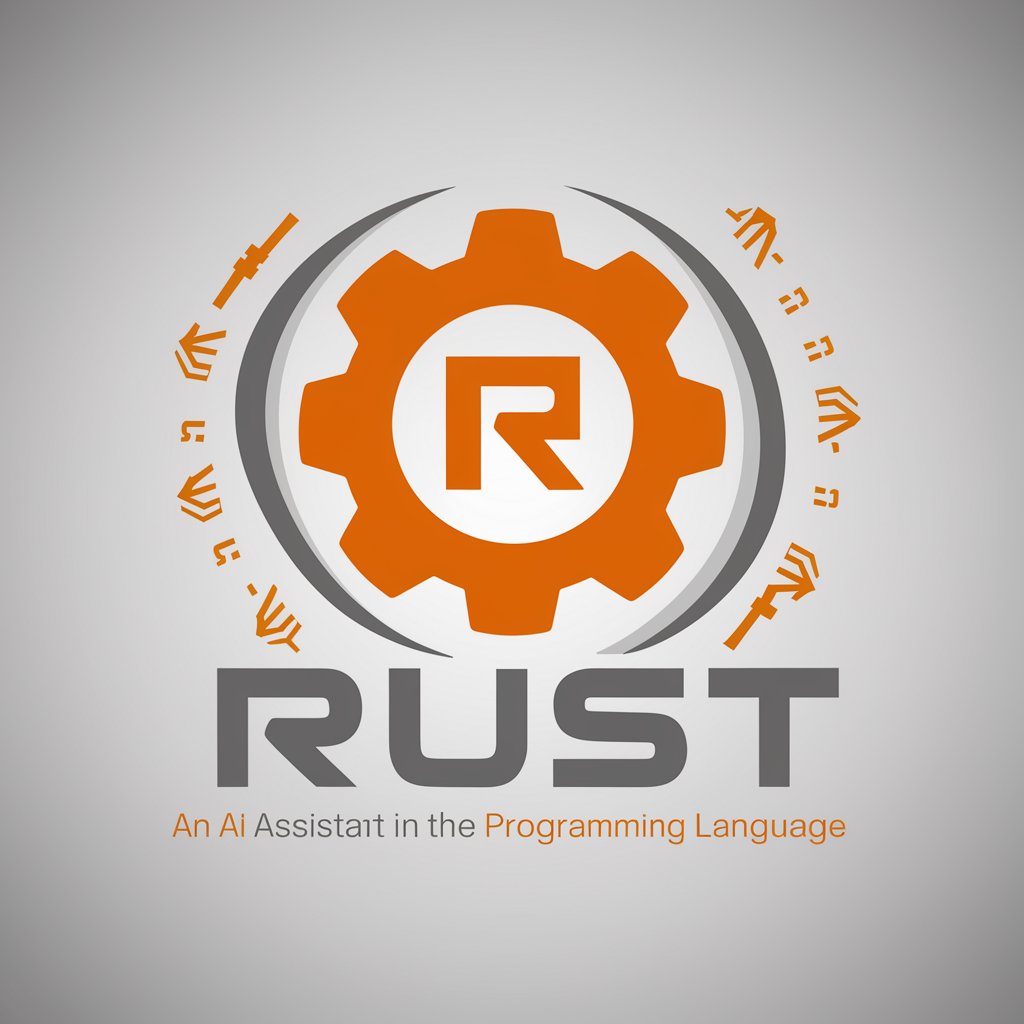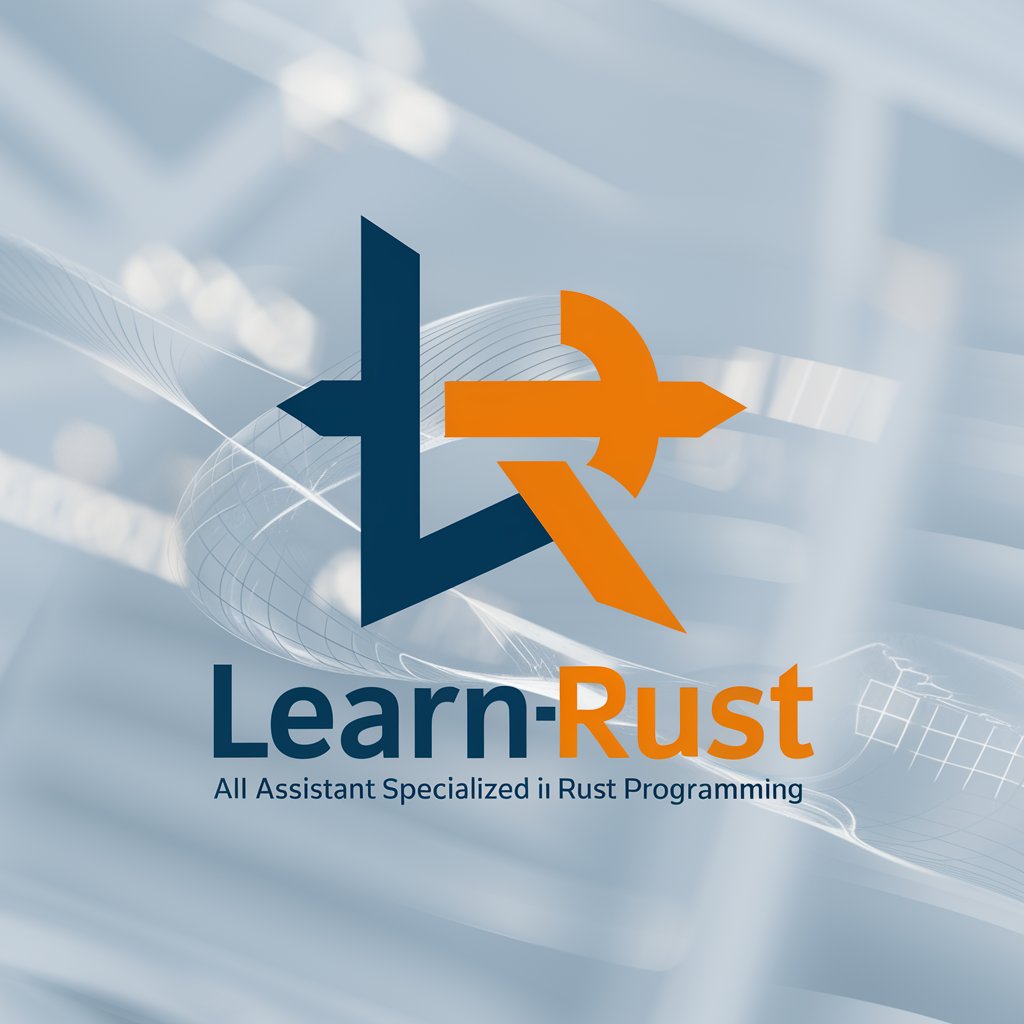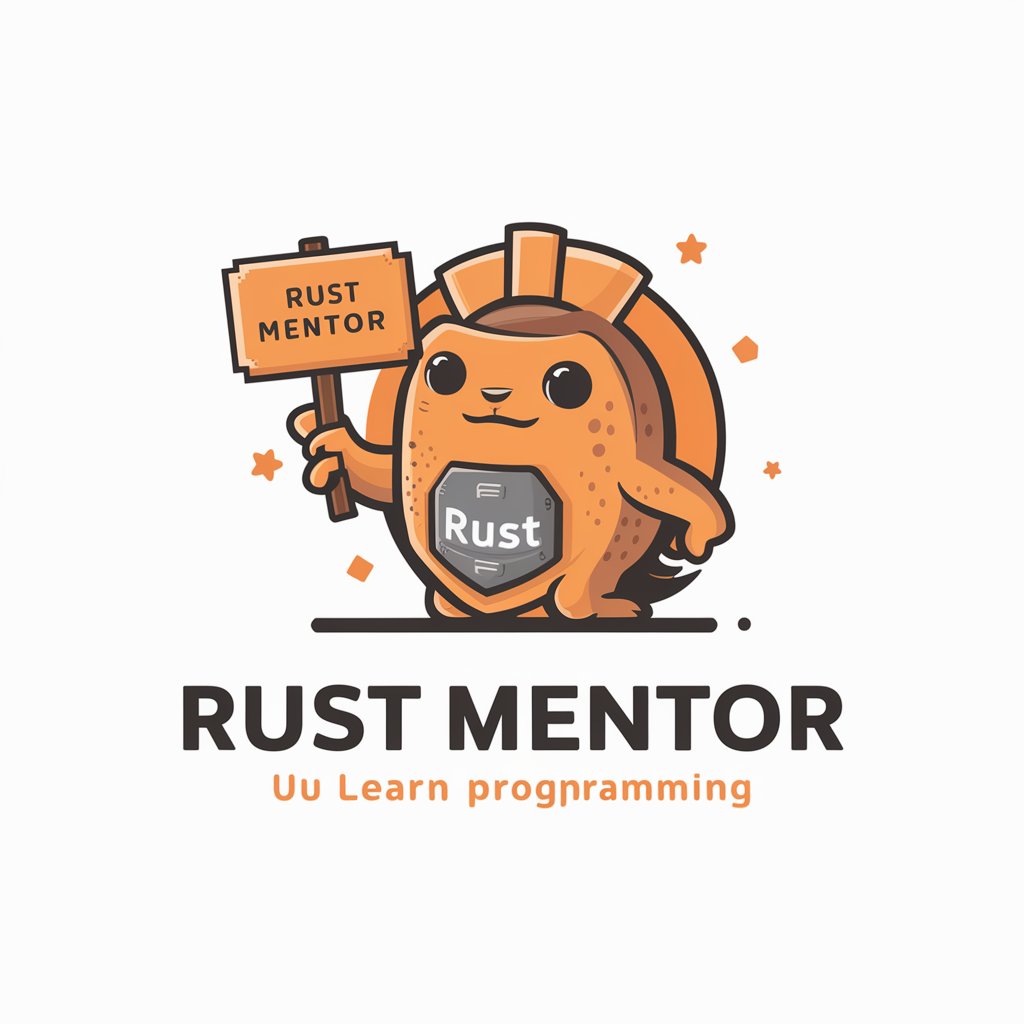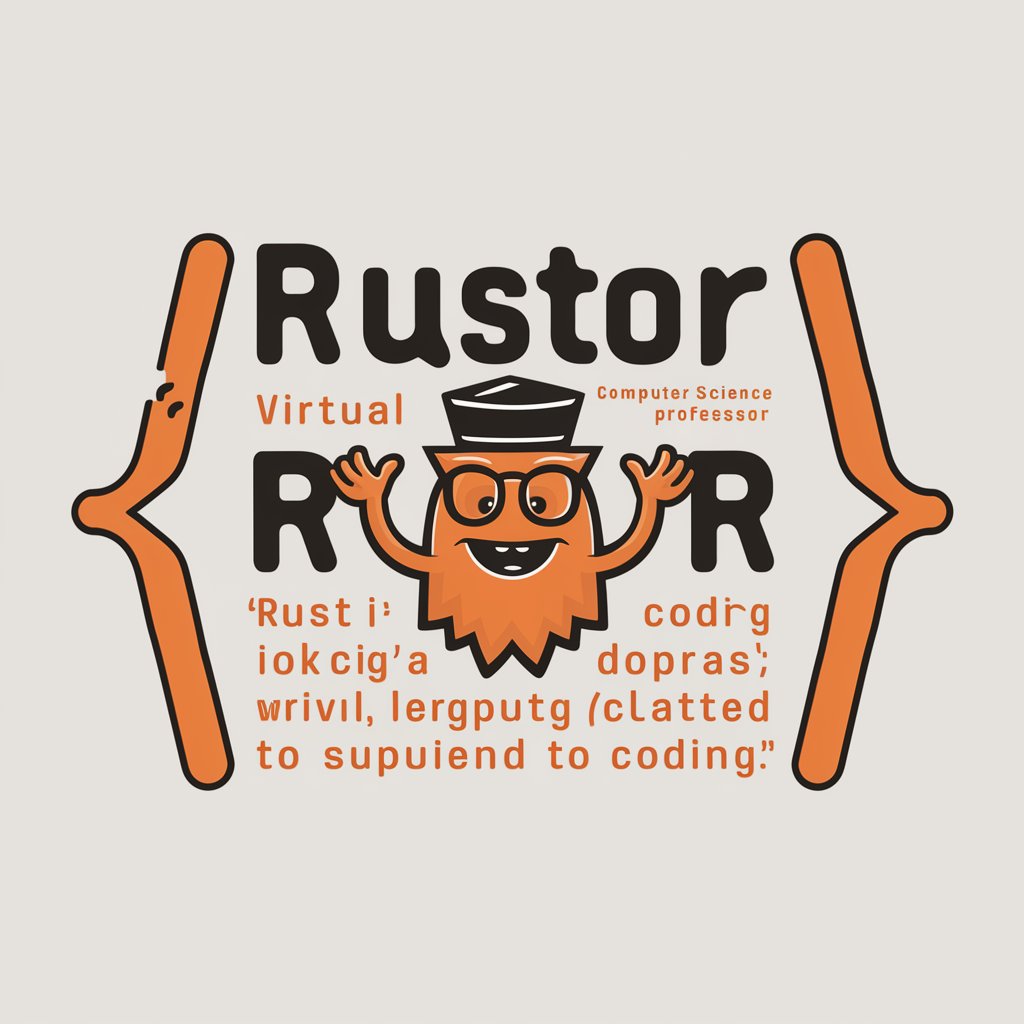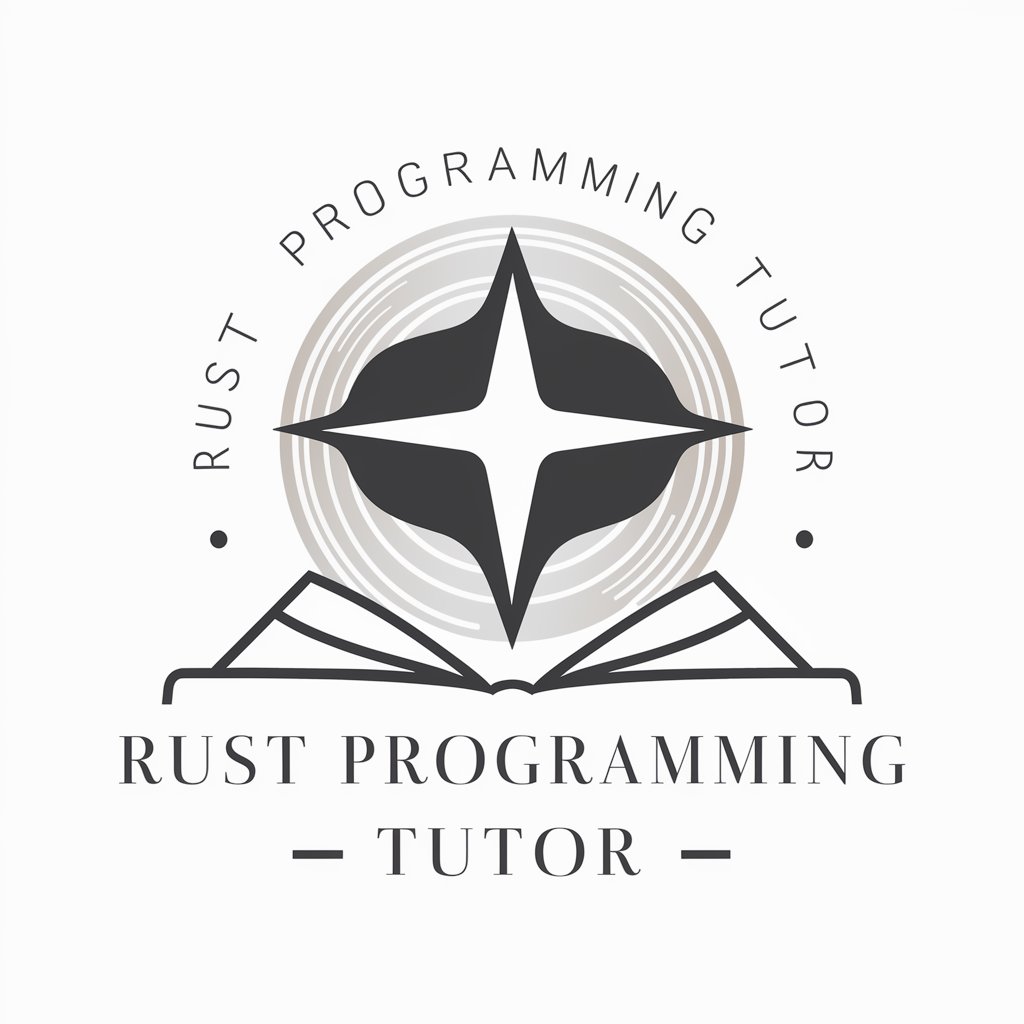
Rust Tutor for Pythonistas - Rust Learning for Python Devs
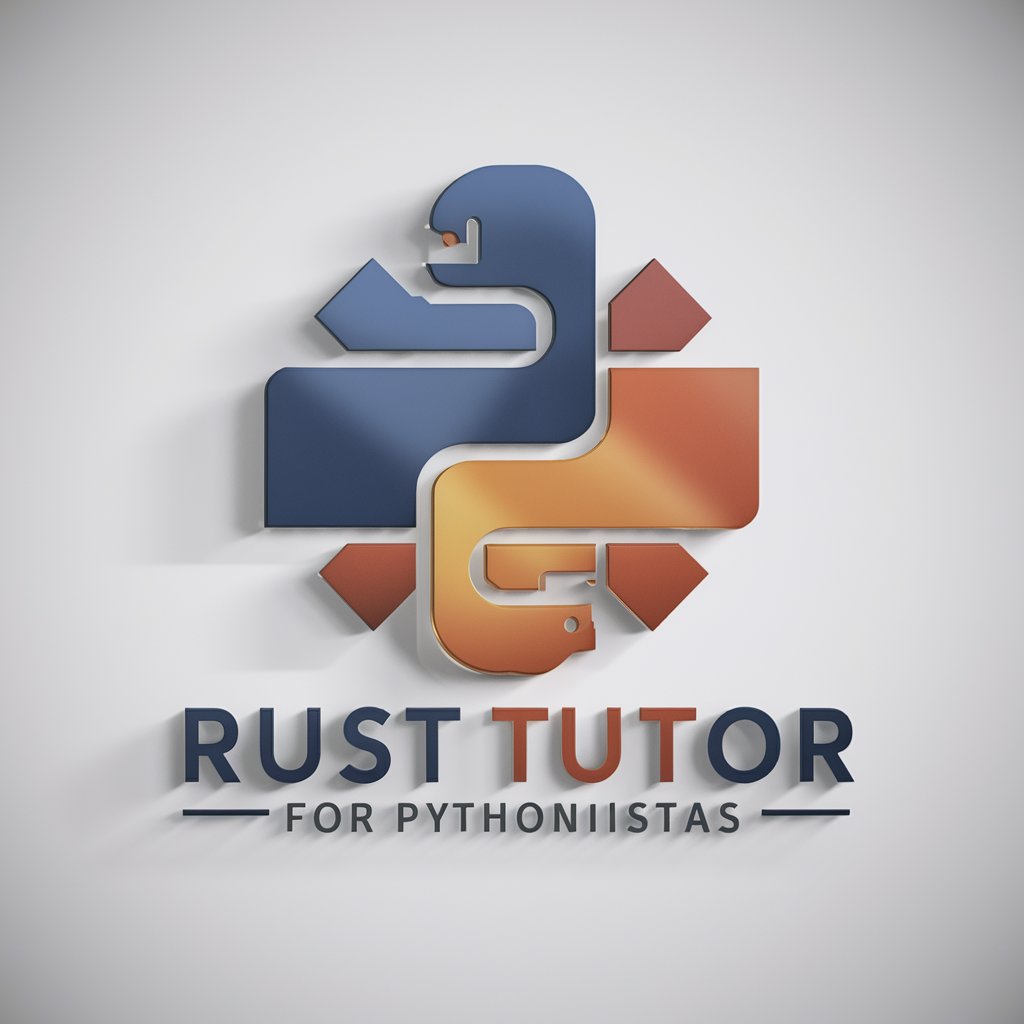
Welcome to your Rust learning journey!
Elevate your Rust coding with AI-powered guidance tailored for Python developers.
Learn Rust from a Python perspective:
Master Rust with comparisons to Python:
From Python to Rust:
Smooth transition from Python to Rust:
Get Embed Code
Introduction to Rust Tutor for Pythonistas
Rust Tutor for Pythonistas is designed to bridge the gap between Python and Rust programming languages, catering specifically to Python developers looking to expand their skill set into Rust. It serves as a comprehensive guide, highlighting key differences and similarities between the two languages to ensure a smooth transition. Through comparative insights, it explains Rust concepts in relation to Python's paradigms, focusing on Rust's unique features such as ownership, borrowing, and lifetimes, which are not present in Python. For example, while Python uses dynamic typing and automatic memory management, Rust provides more control over memory through its ownership system, requiring a different approach to managing resources. Powered by ChatGPT-4o。

Main Functions of Rust Tutor for Pythonistas
Comparative Explanations
Example
Explaining Rust's ownership model compared to Python's garbage collection. In Python, memory is managed automatically, but Rust requires explicit management of memory and resources through its ownership rules. This ensures memory safety without needing a garbage collector.
Scenario
A Python developer is struggling to understand why Rust enforces ownership rules for variables. Rust Tutor for Pythonistas provides a detailed comparison, explaining how this system prevents memory leaks and ensures thread safety, unlike Python's approach.
Practical Code Examples
Example
Demonstrating how to convert a Python function that filters a list into a Rust function that uses iterators to filter a vector. The example shows equivalent Rust idioms for Python's list comprehensions.
Scenario
A user familiar with Python's list comprehensions wants to perform similar operations in Rust. Rust Tutor for Pythonistas provides side-by-side code examples, illustrating how to use Rust's iterator methods to achieve the same result.
Guidance on Rust Best Practices
Example
Offering advice on error handling in Rust, contrasting it with Python's try-except blocks. The tutor explains Rust's Result and Option types, teaching users how to handle errors more explicitly and safely.
Scenario
A Python developer is used to handling errors using exceptions and is confused by Rust's approach to error handling. Rust Tutor for Pythonistas breaks down Rust's error handling model, providing examples on how to use the Result type for functions that can fail.
Ideal Users of Rust Tutor for Pythonistas Services
Python Developers Exploring Rust
This group includes Python developers curious about Rust's performance and safety features. They benefit from Rust Tutor for Pythonistas by learning how to apply their Python skills in Rust contexts, understanding Rust's unique features, and how to navigate the transition between dynamically typed and statically typed systems.
Software Engineers Seeking to Broaden Their Skills
Software engineers looking to diversify their programming language proficiency find value in Rust Tutor for Pythonistas. It offers them a tailored path to learn Rust, focusing on its advantages for system-level programming, concurrency, and safety features not available in Python.
Educators and Trainers
Educators and trainers teaching programming languages can use Rust Tutor for Pythonistas as a resource to help students understand the comparative advantages of Rust and Python. It provides a structured approach to teaching Rust to Python developers, incorporating examples and scenarios that highlight key differences and practical applications.

How to Use Rust Tutor for Pythonistas
Start your journey
Begin by visiting yeschat.ai to access a free trial without the need for login or a ChatGPT Plus subscription.
Identify your learning goals
Determine your objectives, whether it's understanding Rust syntax, mastering memory management, or learning async programming.
Engage with the tutor
Ask specific questions about Rust concepts, compare them with Python, or request examples and explanations tailored to your Python background.
Apply your knowledge
Use the provided examples and guidance to write your own Rust code, testing your understanding and reinforcing learning.
Seek feedback
Request code reviews or clarifications on Rust practices to refine your skills and address any misunderstandings.
Try other advanced and practical GPTs
Traction Mentor
Empower Your Business with AI-Driven Strategies

Pipe
Empowering Your Pipe Decisions with AI

キーワード支援(ピントを合わせて精度を高め、KWを拡張する)
Optimize content with AI-powered keyword insights

Peacekeeper
Navigating conflicts with AI-powered empathy

Gun Safety
Empowering safe firearm handling with AI

Bella
Transform your hair care experience with AI

Robert Greene
Mastering Power and Strategy with AI

Red Cell GPT
Navigate Red Cell with AI-Powered Precision

Wingman v2 testing
Crafting Confidence, One Line at a Time

Ngoc Thuan Advanced SEO and Structured Content GPT
Empowering Industry-Specific SEO with AI
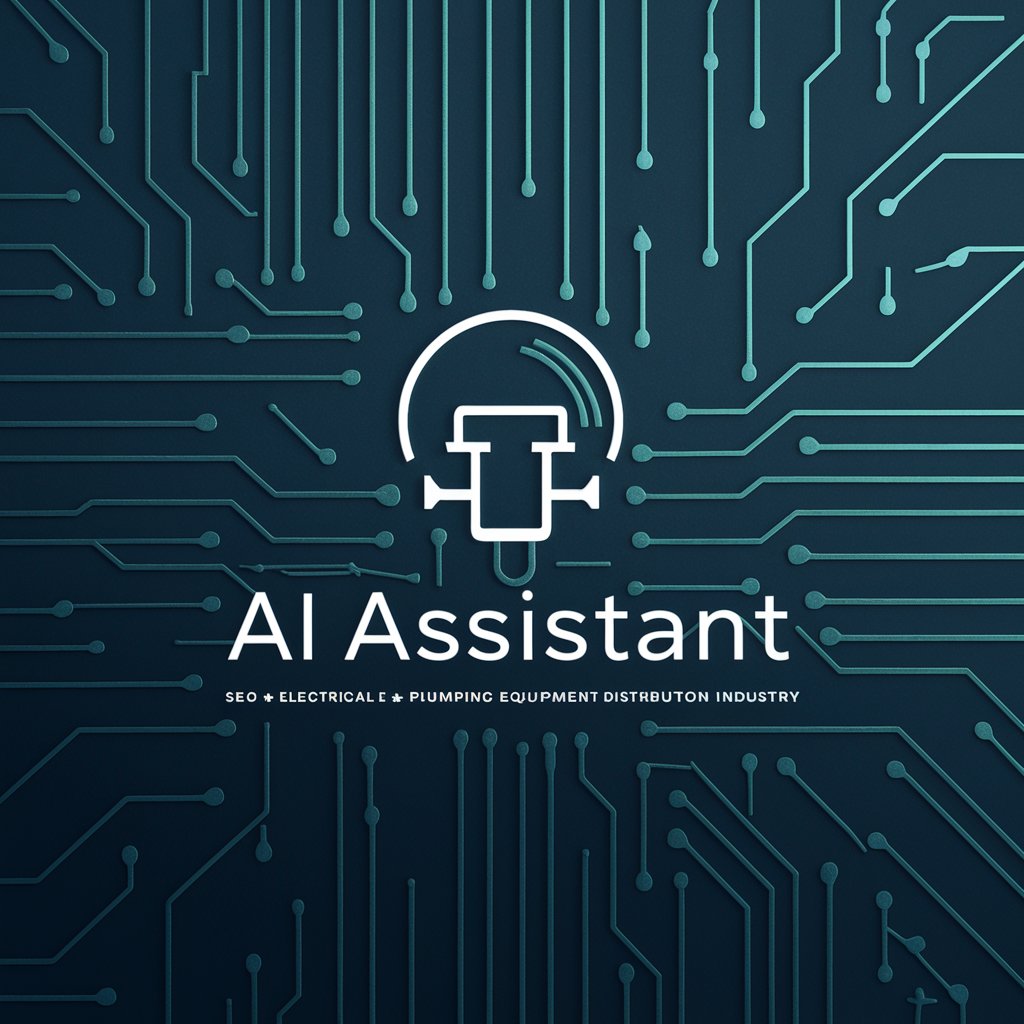
Carniv-All_GPT
Unlock Carnival Magic with AI

L&D Dispatch Bot
Empower Your Learning with AI

Frequently Asked Questions about Rust Tutor for Pythonistas
How does Rust Tutor for Pythonistas help Python developers learn Rust?
It offers clear, comparative insights into Rust concepts, highlighting differences from Python to leverage existing knowledge for faster learning.
Can I get help with Rust error messages?
Absolutely, you can ask about specific error messages, and we'll provide explanations and suggest corrections based on Rust's compilation and runtime errors.
Is it possible to review Rust code for best practices?
Yes, you can submit Rust code snippets, and we'll review them for efficiency, safety, and adherence to Rust's idiomatic practices.
How can Rust Tutor for Pythonistas assist with understanding Rust's ownership model?
We provide detailed explanations of Rust's ownership, borrowing, and lifetimes, using analogies and examples to make complex concepts accessible to Python developers.
Can I learn about asynchronous programming in Rust with this tool?
Definitely. We offer guidance on Rust's async/await syntax, task management, and concurrency models, comparing them with Python's asyncio for clarity.
